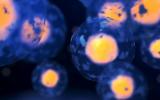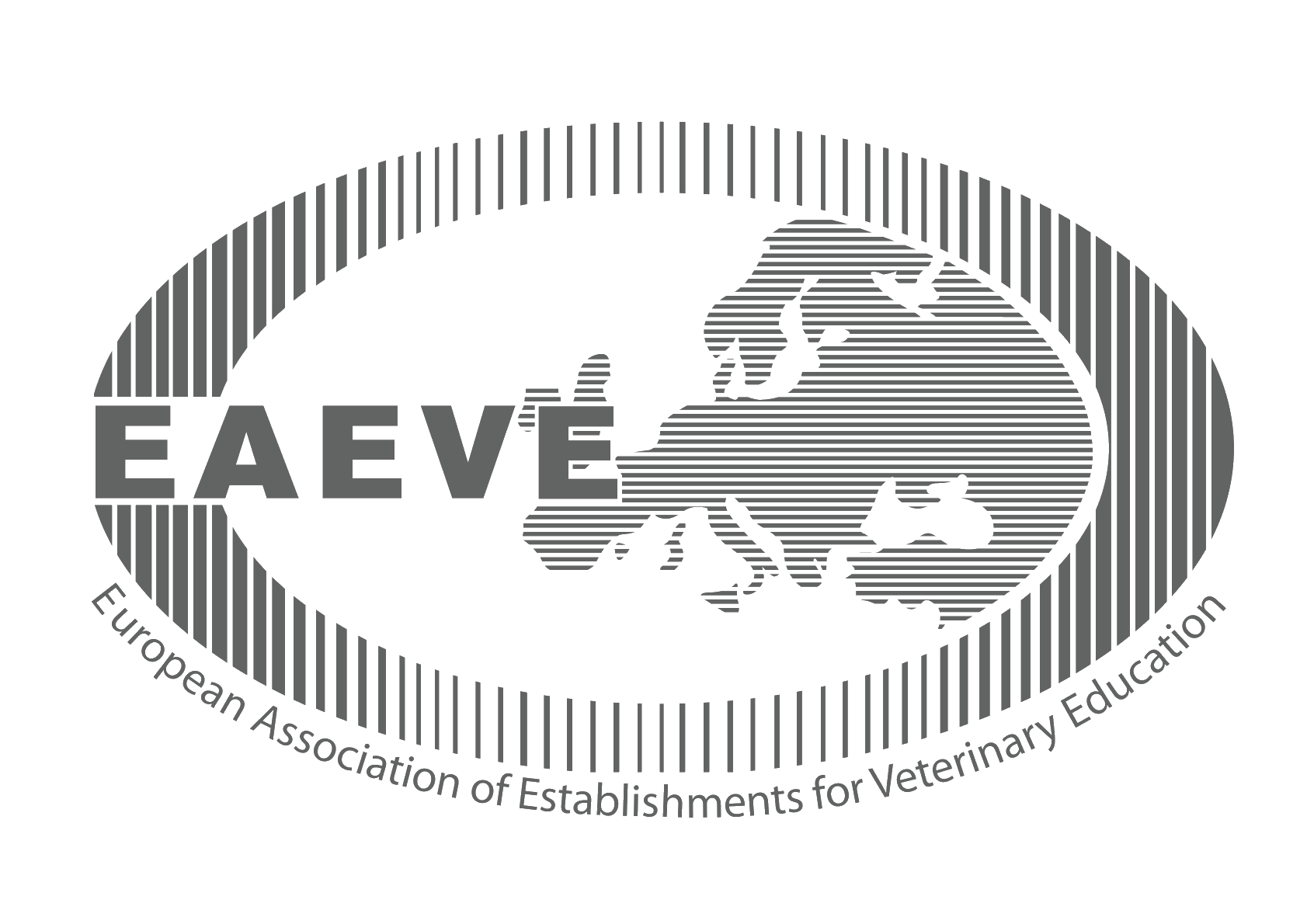
Year 2
Overview
Students become acquainted with the functioning of the body (physiology), microbiology, parasitology and pathology. They also begin to learn about animal welfare and ethics and regulations in this area. At this stage they are beginning to develop an awareness of providing a safe food chain.
Mandatory subjects
L – Lectures
S – Seminars
P – Practical Work
CP – Clinical Practice
OFS – Other forms of study
OW – Own Work
ΣCH – Contact Hours
ECTS – European Credit Transfer System
Fall Semester
Subject |
Supervisor |
L |
S |
P |
CPV |
OFS |
OW |
ΣCH |
ECTS |
| Histology with embryology 2 | Milka Vrecl Fazarinc | 45 | 45 LAB | 120 | 210 | 7 | |||
| Biochemistry 2 | Petra Zrimšek | 30 | 6 | 15 LAB | 99 | 150 | 5 | ||
| Veterinary physiology | Nina Čebulj Kadunc, Robert Frangež | 55 | 5 | 45 LAB | 75 | 180 | 6 | ||
| Microbiology and immunology | Andrej Pengov | 60 | 30 LAB* | 120 | 210 | 7 | |||
| Animal welfare, ethics and legislation 1 | Ožbalt Podpečan | 15 | 15 | 5 TPT | 55 | 90 | 3 | ||
| Elective course 3 | 3 |
LAB – Laboratory Practice (up to 18 students in a group); LAB* – Laboratory Practice (up to 9 students in a group); TPT – Terrain Practical Training (generally one group)
Spring Semester
Subject |
Supervisor |
L |
S |
P |
CP |
OFS |
OW |
ΣCH |
ECTS |
| Veterinary physiology | Nina Čebulj Kadunc, Robert Frangež | 55 | 5 | 45 LAB | 75 | 180 | 6 | ||
| Microbiology and immunology | Andrej Pengov | 60 | 45 LAB* | 75 | 180 | 6 | |||
| Feed safety | Breda Jakovac Strajn | 40 | 34 LAB* | 76 | 150 | 5 | |||
| Parasitology | Petra Bandelj | 60 |
15 LAB 15 LAB* |
150 | 240 | 8 | |||
| Pathology 1 | Tanja Švara | 75 | 30 PSC | 15 | 120 | 4 | |||
| Elective course 3 | 3 |
LAB – Laboratory Practice (up to 18 students in a group); LAB* – Laboratory Practice (up to 9 students in a group); PSC - Practical Work in Special Circumstances (up to 7 students in a group)
Supervisor: Milka Vrecl Fazarinc
The subject studies the microscopic structure of organs, their functional significance and mutual comparison between different species of animals. In addition, it teaches students about the development of gametes and embryonic development in domestic animals from fertilisation to birth.
Supervisor: Petra Bandelj
Learning about the parasite-host relationship. Familiarisation with the main morphological characteristics of important species of parasites and their functioning. The subject introduces the developmental cycles in which domestic or wild animals are either the final or intermediate host. There is a special emphasis on parasitic zoonoses and their importance in human healthcare, and an introduction to the basic principles of parasite control.
Supervisor: Nina Čebulj Kadunc, Robert Frangež
An introduction to general and special physiological processes in domestic and other animals covered by veterinary medicine. Progressive development of understanding and knowledge about the functioning of individual organs and organ systems (nerves and senses, hormonal glands, blood circulation, gastrointestinal tract, respiratory system, excretory muscles and bones and mammary glands), their importance and roles in maintaining homeostasis, mechanisms of regulation and integration of their functioning. Understanding the processes of obtaining and consuming nutrients and energy, lactation and egg production. Acquiring knowledge and practical skills about the analytical, diagnostic and experimental methods used in modern physiology.
Supervisor: Andrej Pengov
The subject covers a basic knowledge of the structure and properties of bacteria, viruses and fungi. Students are acquainted with the basic principles of the body's defence against pathogenic microbes and the characteristics and determination of pathogenic microbes for domestic animals, with a special emphasis on microbial species that cause zoonoses and the detection and control of microbes that cause food poisoning and are transmitted by foods of animal origin.
Supervisor: Breda Jakovac Strajn
Learning about, in particular, the part of animals’ diet that is connected with nutritional errors or the intake of harmful substances through feed. Students are acquainted with current legislation in the field of safe feed and official control procedures, such as methods for detecting undesirable substances in feed.
Supervisor: Petra Zrimšek
The course provides knowledge of basic physical and chemical laws and reactions that, as is the case for inanimate nature, apply to living organisms. It introduces basic biomolecules, their interactions in metabolic processes and other biochemical processes in living organisms, and the regulatory mechanisms of these processes. Basic experimental methods used for research or analytical purposes are also covered.
Supervisor: Ožbalt Podpečan
The objectives of the course are to acquaint students with:
- how to define the concepts of animal welfare
- how to identify different concepts for well-being and their use
- how to recognise the quality of life of animals in a continuous process of general balance and well-being and the fluctuation between negative and positive
- the meaning of the analysis of scientific bases as well as value judgements on which different concepts of well-being are based
The concepts of welfare are applied in practice, important ethical issues are identified in veterinary practice, veterinary norms, laws and regulations on animal welfare are identified and established.
Supervisor: Tanja Švara
In general pathology, students learn about basic pathological processes (internal and external harmful factors, ultrastructural changes, regressive changes, progressive processes, circulatory disorders, inflammation, neoplasms, developmental disorders (teratology), basics of immunopathology), and in special pathology learn about more frequent pathological changes in individual organ systems in different animal species. Practical work in the dissection room and microscopy (pathohistology) is an important part of this subject.
Elective Subjects of Year 1 and 2
L – Lectures
S – Seminars
P – Practical Work
CP – Clinical Practice
OFS – Other forms of study
OW – Own Work
ΣCH – Contact Hours
ECTS – European Credit Transfer System
Fall Semester
Subject |
Supervisor |
L |
S |
P |
CP |
OFS |
OW |
ΣCH |
ECTS |
| English | Andreja Drašler | 45 TJ | 45 | 90 | 3 | ||||
| Veterinary Informatics | Miha Mraz | 30 |
15 LAB |
45 | 90 | 3 | |||
| Biophysical Principles of Clinical Diagnostic Methods | Jure Derganc | 15 | 15 |
15 LAB |
45 | 90 | 3 | ||
| Alternative sustainable protein sources in food and feed 1 | Breda Jakovac Strajn | 10 | 15 | 30 | 30 | 90 | 3 | ||
| COD - external elective course | Po izbiri | 3 |
1 The course is available in 1st, 2nd, 3rd and 4th year
LAB - Laboratory Practice (up to 18 students in a group); FL - Foreign Language (up to 30 students in a group)
Spring Semester
Subject |
Supervisor |
L |
S |
P |
CP |
OFS |
OW |
ΣCH |
ECTS |
| Veterinary Medical Terminology | Breda Čop | 30 | 60 | 90 | 3 | ||||
| History of Veterinary Medicine | Andrej Pengov | 30 |
|
60 | 90 | 3 | |||
| Communication Skills in Veterinary Medicine 1 | Metka Kuhar | 15 | 30 |
|
45 | 90 | 3 | ||
| The Methodology of Scientific Research | Jelka Zabavnik Piano | 15 | 15 | 60 | 90 | 3 | |||
| COD - external elective course | 3 |
It is only possible to enrol in each elective subject once during study. With the prior consent of the Commission for Study and Student Affairs, students can achieve 5% of the credit points of the programme through external election of general elective courses and compulsory general courses in programmes at the University of Ljubljana or other universities in Slovenia.
Following completion of enrolment and based on a student’s written and substantiated explanation, the vice-dean for the pedagogical field can approve a change of the elective subject up to 20 October and inform the Commission for Study and Student Affairs. Subsequent changes of elective subjects are no longer possible.
With the prior consent of the Commission for Study and Student Affairs or the coordinator for international activities, students may transfer part of the study programme from any programme of study of veterinary medicine at a veterinary educational institution listed in the list of verified institutions EAEVE (European Association of Establishments for Veterinary Education).
Supervisor: Andreja Drašler
Analysis and interpretation of selected professional texts in the field of veterinary medicine and medicine.
Supervisor: by choice
Supervisor: Miha Mraz
Acquaintance with the theoretical basics, and particularly practical knowledge, of the use of modern information technology in the field of veterinary medicine; acquaintance with computers and networks, the most widespread and widely used computer programmes and their use, databases and information systems, electronic information resources in the field of veterinary medicine.
Supervisor: Breda Čop
In this subject, students of veterinary medicine learn the basics of Latin, the most common groups of Latin and Greek words that are used in veterinary and human medicine, and how to correctly use professional terminology and derivates. Through selected examples, students see how Slovene medical terms are formed, and in some words, what their etymology is.
To this end, students get a theoretical basis for the correct use of technical terms, which ensures uniformity and unambiguity in international naming. The knowledge acquired is important for understanding the terminology in veterinary medicine and for general knowledge.
- pronunciation and accent in Latin
- nouns of all five declensions (recognition of forms based on suffixes, active formation of the generative)
- the verb esse and the active forms of the verbs of all four conjugations in the present
- present and perfect participle
- creation and ‘Sloveneisation’ of medical terms and word order
- etymology of medical terms
- Greek script and the most common Greek words for diseases
Supervisor: Andrej Pengov
Familiarity with the varied history of animal husbandry from prehistoric times to the present day.
Supervisor: Metka Kuhar
Familiarity with some of the theoretical basics of communicology, mainly in terms of a practical approach to communication between veterinarians and clients, the media and senior veterinary institutions.
In recent years, an ever-increasing amount of research shows the exceptional importance of mastering communication skills in veterinary practice, which are often placed alongside clinical skills. In this subject, students have the opportunity to learn the key features of effective and satisfactory communication with clients (e.g. making contact, active listening, empathic attitude, etc.), including optimal structuring of veterinary consultations and insight into the communication aspect of specific situations that are a particular challenge (euthanasia, emergencies, reporting one’s own mistakes, resolving conflict situations, etc.). Communication characteristics in the context of social trends are covered, such as changing the relationship between humans and animals and changing the nature of the doctor/veterinarian-client relationship. A large part of the course is of a practical, experiential nature and includes work in pairs and small groups, role plays, viewing recordings of veterinary consultations, presentations of professional papers on the subject of the course, etc. The subject requires ongoing active participation and, in addition, the assessment consists of a final exam or research project (optional/of students’ choice).
Supervisor: Jelka Zabavnik Piano
Knowledge of science as a dynamic system of verified, socially relevant, generally valid information about nature, humankind and society, and studying the relationship between science and the profession. The specific competencies that students develop in this subject are knowledge of the characteristics of scientific research work and the use of knowledge from this subject to critically read professional and scientific literature, how to write professional articles, plan and produce research work and present the results of their work.
The introductory lecture is followed by work in the form of workshops, discussions and individual work. Students will learn to search for relevant literature, critically evaluate it, find research problems, prepare a research plan and conduct research. The results of the research will be presented in written and oral form. The acquired knowledge is useful for study and learning and the preparation of seminar and research assignments. This encourages lifelong education and the acquisition of knowledge from experientially acquired sources in carrying out professional work.
Nosilec: Jure Derganc
With the development of technology, modern diagnostic methods have become accessible to everyone and are an indispensable tool in treatment at any veterinary practice. The better veterinarians understand the workings of these methods, the better they can treat their patients using them. In the subject Biophysical Bases of Clinical Diagnostic Methods some basic physical laws on which modern diagnostic methods are based are explained, and more is learnt about the basic principles of ultrasound, X-ray, CT, magnetic resonance, ECG, pulse oximetry, blood pressure measurements, and more.
Glavna navigacija
- Informativni dan
- Why to become a veterinarian?
- Undergraduate Studies
- Postgraduate studies
- Pripravništvo
- Summer Schools
- Continuous education
- Professional Development
- International Activity
- Mednarodna dejavnost - Tuji študentje
- The Path to Creative Knowledge
- Tutoring
- Extracurricular Activities
- Career Centres
- Alumni
- Student organizations and societies
- Quality Assurance
Location
Gerbičeva 60
SI-1000 Ljubljana
Slovenija
Sample Reception
Samples are received at several locations throughout Slovenia. See where.
The veterinarian on duty
Emergency veterinary assistance for dogs and cats and a telephone number of constant readiness.
Library
A wide selection of domestic and foreign professional literature in the field of veterinary medicine and other sciences.
Main navigation
-
Education
- Informativni dan
- Why to become a veterinarian?
- Undergraduate Studies
- Postgraduate studies
- Pripravništvo
- Summer Schools
- Continuous education
- Professional Development
- International Activity
- Mednarodna dejavnost - Tuji študentje
- The Path to Creative Knowledge
- Tutoring
- Extracurricular Activities
- Career Centres
- Alumni
- Student organizations and societies
- Quality Assurance
- Clinics
- Diagnostics
- Dobrobit
- NVI
- Research
- About us
- Hub



